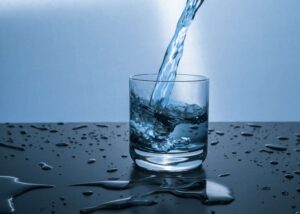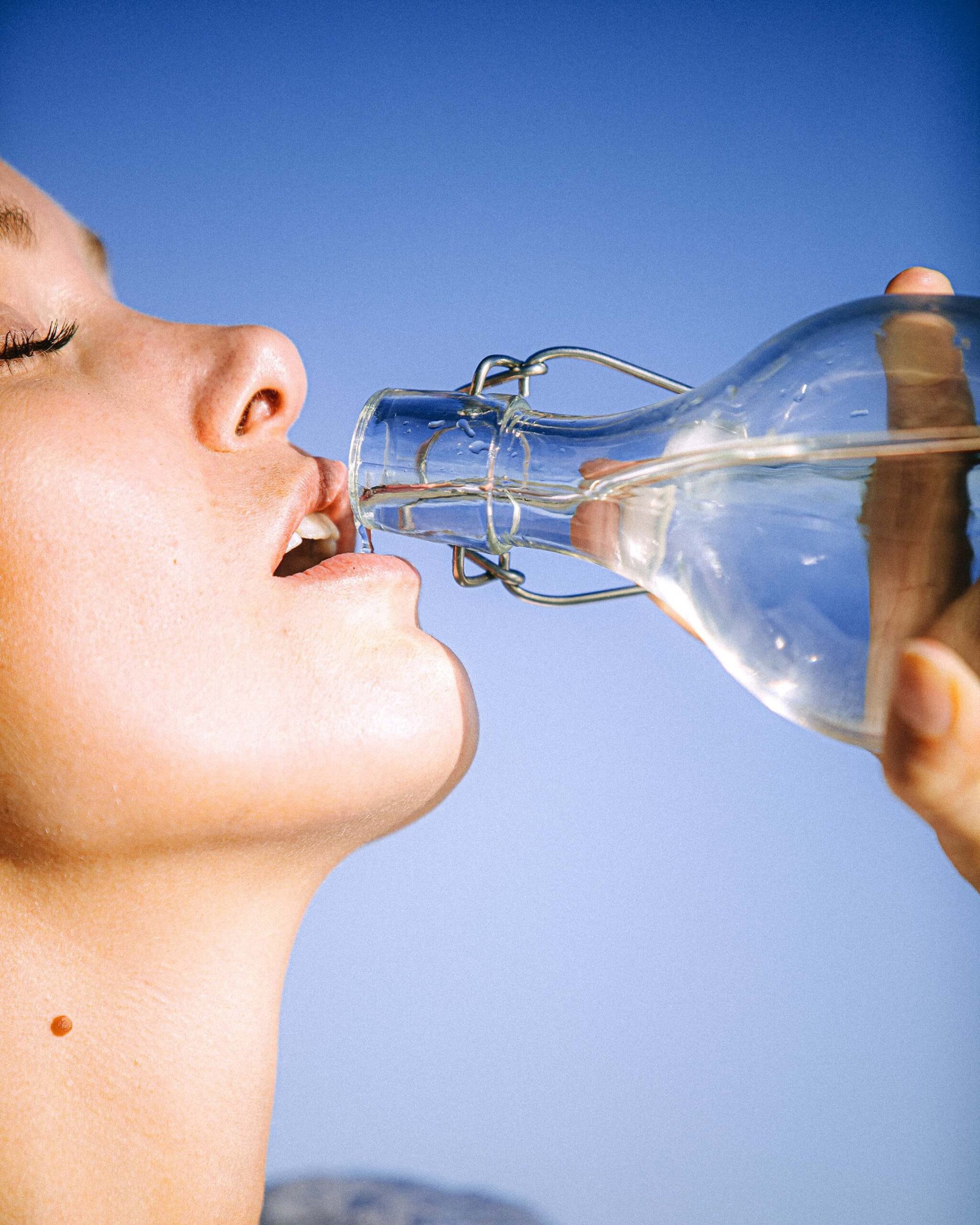Dehydration is a condition that occurs when the body does not have enough fluid to function properly. Dehydration’s meaning in Hindi is “शूषण” (pronounced shushan).
In this comprehensive guide, we will explore the causes, symptoms, and effects of dehydration, as well as the importance of staying hydrated.
Whether you are an athlete, a busy professional, or a concerned parent, understanding the significance of hydration is crucial for maintaining optimal health.
Dehydration synthesis is a chemical reaction in which two molecules combine to form a larger molecule, simultaneously removing a water molecule.
This process is also known as the condensation reaction. During dehydration synthesis, a hydroxyl group (-OH) is removed from one molecule and a hydrogen atom (-H) is removed from another, resulting in the formation of water (H2O).
What is dehydration?
Dehydration is a condition that arises when the body loses more fluid than it takes in. Common causes of dehydration include excessive sweating, diarrhea, vomiting, fever, and certain medications that increase urination.
Mild Dehydration
Mild dehydration is characterized by symptoms such as thirst, dry mouth, decreased urine output, and sweating. In children, mild dehydration occurs when they lose 3%–5% of their body weight due to fluid loss.
This type of dehydration can usually be treated at home by drinking water, electrolyte drinks, or oral rehydration solutions readily available at drugstores.
Moderate Dehydration
Moderate dehydration shares similar symptoms with mild dehydration, but they are more intense. In children, moderate dehydration occurs when they lose 6%–10% of their body weight.
Medical intervention, such as intravenous (IV) fluids administered by a healthcare professional, is necessary to treat moderate dehydration effectively.
Severe Dehydration
Severe dehydration is a medical emergency that requires immediate attention. Symptoms include dizziness, rapid breathing, sunken eyes, fainting, and a racing heart.
Children may lose over 10% of their body weight during severe dehydration. Treatment often involves IV fluids containing salt to restore the body’s fluid balance.
Symptoms of Dehydration
It is important to be able to identify the signs of dehydration to address it promptly. Dehydration can range from mild to severe, with varying symptoms.
By understanding these signs, you can take appropriate measures to rehydrate and prevent further complications.
Mild to Moderate Dehydration Symptoms
-
Thirst
-
Dry or Sticky Mouth
-
Decreased Urine Output
-
Dark Yellow Urine
-
Dry, Cool Skin
-
Headache
-
Muscle Cramps
-
Low Blood Pressure
-
Loss of Appetite or Sugar Cravings
-
Flushed Skin
-
Swollen Feet
-
Chills
-
Constipation
-
Shriveled Skin
-
Lack of Sweating
Severe Dehydration Symptoms
-
Lack of Urination or Dark Yellow Urine
-
Very Dry Skin
-
Dizziness
-
Rapid Heartbeat
-
Rapid Breathing
-
Sunken Eyes
-
Sleepiness, Lack of Energy, Confusion, or Irritability.
-
Fainting
Dehydration Symptoms in Babies and Young Children
Dehydration symptoms can manifest differently in babies and young children. Parents and caregivers need to be aware of these signs:
-
Dry Mouth and Tongue
-
Absence of Tears
-
Decreased Urination
-
Sunken Eyes and Cheeks
-
Soft Spot on the Top of the Skull
-
Sleepiness, Lack of Energy, or Irritability.
-
Dry or Wrinkled Skin
-
Deep, Rapid Breathing
-
Cool, Blotchy Hands and Feet
It is important to note that severe dehydration in babies and young children is a medical emergency and should be treated immediately.
Risks associated with dehydration

Dehydration can have significant consequences for our bodies and our overall health. If left untreated, it can lead to various complications, ranging from mild to life-threatening. It is crucial to understand the potential risks associated with dehydration in order to prioritize proper hydration.
Heat Exhaustion and heat stroke
One of the most common complications of dehydration is heat exhaustion and heatstroke. When the body loses excessive amounts of fluid and electrolytes through sweating, the body’s temperature regulation system can become compromised.
Heat exhaustion is characterized by symptoms such as fatigue, weakness, dizziness, nausea, and excessive sweating. If left untreated, it can progress to heatstroke, a life-threatening condition that requires immediate medical attention.
Seizures
Dehydration can also increase the risk of seizures. Electrolyte imbalances caused by dehydration can disrupt the normal electrical activity in the brain, leading to seizures.
This is particularly concerning for individuals with a history of epilepsy or those predisposed to seizures.
Kidney Failure
The kidneys play a crucial role in filtering waste products and maintaining fluid balance in the body.
Dehydration can strain the kidneys and impair their function, potentially leading to kidney failure. Chronic dehydration can increase the risk of developing kidney stones and urinary tract infections.
Coma
In severe cases, dehydration can lead to a state of unconsciousness known as a coma. This occurs when the brain does not receive an adequate supply of oxygen and nutrients due to reduced blood flow caused by dehydration.
Coma is a life-threatening condition that requires immediate medical intervention.
Shock
Dehydration can also lead to a state of shock, characterized by low blood volume and inadequate oxygen supply to the body’s organs.
This can result in a rapid drop in blood pressure, a weak pulse, and rapid breathing. Immediate medical attention is essential to stabilize the individual in a state of shock.
Brain Swelling
When the body is dehydrated, the brain can shrink and pull away from the skull.
However, if rehydration occurs too rapidly, the brain can swell and exert pressure on vital structures. This can lead to neurological complications and potentially life-threatening situations.
Low Blood Volume Shock
Dehydration can cause a decrease in blood volume, leading to low blood pressure and reduced oxygen delivery to the body’s tissues.
This can result in symptoms such as lightheadedness, a rapid heartbeat, and a weak pulse. Prompt medical attention is crucial to stabilizing blood pressure and restoring fluid balance.
Peripheral Edema and Pulmonary Edema
In some cases, excessive fluid intake in an attempt to rehydrate can lead to peripheral edema, characterized by swelling in the limbs.
Additionally, fluid overload can cause pulmonary edema, a condition where fluid accumulates in the lungs, leading to breathing difficulties.
It is important to strike a balance in fluid intake to avoid these complications.
Dehydration Effects on Pregnancy
Dehydration during pregnancy can have serious consequences for both the mother and the developing baby.
It can result in complications such as too little amniotic fluid, premature labor, and a lack of breast milk production.
Dehydration during pregnancy has also been associated with an increased risk of neural tube defects in the developing baby.
The Importance of Staying Hydrated

Given the potential risks and complications associated with dehydration, it is crucial to prioritize proper hydration. Staying hydrated is essential for maintaining overall health and well-being. Whether you are an athlete, a busy professional, or a concerned parent, ensuring adequate hydration should be a priority.
Tips for Staying Hydrated
Here are some practical tips to help you stay hydrated:
-
Carry a Water Bottle
-
Drink Water Before Meals
-
Infuse Your Water
-
Choose Water Over Sugary Drinks
-
Set Reminders
-
Listen to your body
-
Start a Hydration Challenge
-
Eat water-rich foods.
The Role of Electrolytes
In addition to water, it is important to maintain electrolyte balance for optimal hydration. Electrolytes are minerals that play a crucial role in various bodily functions, including fluid balance. Sodium, potassium, magnesium, and calcium are examples of electrolytes that need to be replenished regularly. Electrolyte drinks or oral rehydration solutions can be beneficial, particularly during periods of intense physical activity or when experiencing excessive fluid loss through sweating, diarrhea, or vomiting.
FAQ
What is the dehydration of alcohol?
The dehydration of alcohol is a foundational process in organic chemistry with wide-ranging applications.
Does dehydration cause a headache?
Yes, dehydration can indeed cause headaches. When dehydration occurs, there is a reduction in the volume of blood circulating through the body, leading to decreased oxygen and nutrient supply to the brain.
Can dehydration cause painful urination?
Dehydration can potentially contribute to painful urination, although it’s important to note that there are various causes for this symptom, and dehydration is just one of them.
Can dehydration cause dizziness?
Yes, dehydration can indeed cause dizziness. When the body loses more fluids than it takes in, there is a decrease in blood volume, which can lead to a drop in blood pressure.
Does dehydration cause hair loss?
When the body is dehydrated, it prioritizes the allocation of available water to essential organs and functions, which can affect less critical areas such as the hair and skin.
dehydration treatment at home?
Treating mild dehydration at home typically involves rehydrating with water, oral rehydration solutions (ORS), coconut water, sports drinks, clear broths and soups, fruits and vegetables, and avoiding caffeine and alcohol.
Conclusion
Dehydration is a condition that should not be taken lightly, as it can have serious consequences for our health and well-being. From mild symptoms such as thirst and dry mouth to severe complications like organ failure and coma, dehydration can impact various systems in our bodies. Recognizing the signs of dehydration and taking steps to stay hydrated is crucial for maintaining optimal health.
By prioritizing hydration, whether through water intake or electrolyte replenishment, we can safeguard ourselves against the potential risks associated with dehydration. Remember, staying hydrated is as important to our health as eating a balanced diet, exercising regularly, and getting enough sleep. So, make hydration a priority and drink up to keep your body happy and healthy!

